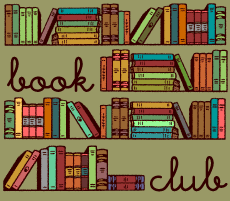Go Local!
The 45 year old community newspaper in Ottawa, the Glebe Report, reviewed Wayne’s novel.
Dorothy Phillips says, “ Ng has created a lively and exciting story using legends and imagined details of daily life.” Her generous review is reproduced below.
Copies are available at another local institution, Octopus Books.
‘Novel’ way to view history
Finding the Way: A Novel of Lao Tzu
by Wayne Ng
Earnshaw Books, 2018
Reviewed by Dorothy Anne Phillips
Reading history in fiction form is always a pleasure. Wayne Ng’s novel about Lao Tzu introduces the life and wisdom of this man, who lived in China about 2,600 years ago. Lao Tzu’s teachings, called The Way or the Tao, (or Dao) still resonate in our time. English translations of his book, The Tao Te Ching, are available in bookstores and often on hold in the public library.
Finding the Way takes the reader immediately into the desert where the old man of 95 encounters guards at the Han Gu Pass. The pass was an important military defence post at the junction of the Wei and Yellow rivers in what is now called the Cradle of Chinese Civilization. The captain of the guards persuades the traveller to tell his story and we are taken back through his tumultuous life and into the court of King Jing at Chengzhou, the core of the Zhou empire. At the court, Lao Tzu becomes the archivist for the royal collection dating back hundreds of years. There he dispenses his wisdom to those who wish to listen, sometimes at his own peril. Among the characters he encounters, including the twin princes, one of whom is heir to the throne, there is conflict and mystery. Which prince will prevail? Who is the Black Serpent? With few sources of what life was actually like in the days of Lao Tzu, Ng has created a lively and exciting story using legends and imagined details of daily life.
One of the characters who appears at the court is Confucius. His philosophy and teachings are in stark contrast to those of Lao Tzu. Confucius believed that a set of laws and rules, well adhered to by a population, would provide the order required for a society. Lao Tzu believed – it can’t really be put into a short phrase but something like – we must follow our own innate nature and not be constrained by someone else’s rules. And so there is yet another mystery in the novel: which philosophy will be most influential in the court? Both philosophies are still followed in our present day, which can be seen in some current conflicts.
The son of Chinese immigrants, Ng was born and grew up in Toronto, with exposure to both eastern and western views of the world. His interest in Lao Tzu was kindled when his wife gave him a copy of The Tao of Pooh by Benjamin Hoff. In a CBC interview Ng claimed to have written the book for himself, but he also believes that westerners could benefit from better understanding eastern philosophies. A novel format, he thought, would appeal to westerners who could absorb some of the ideas of this Master Scholar easily in the familiar form of a mystery story. And the reader does just that.
Dorothy Anne Phillips lives in the Glebe. Her book: Victor and Evie: British Aristocrats in Wartime Rideau Hall, was recently published by McGill-Queen’s University Press.


